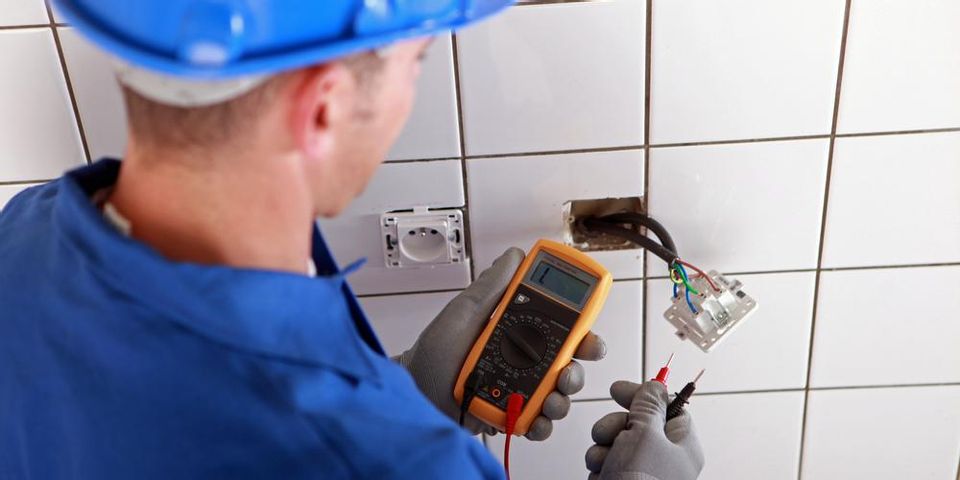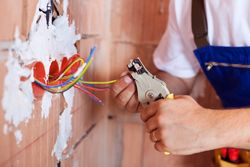An Electrical Contractor Explains the Basics of Low-Voltage Systems

Hiring an electrical contractor is a practical and safe way to handle a complicated problem. However, it’s often useful to have at least a basic knowledge of some simple electrical matters. Breakwater Electric has been providing exceptional electrician services to the Stratford, CT, region for more than 20 years and is happy to provide a crash course in low-voltage systems.
Low-voltage systems aren’t fully defined by the National Electrical Code (NEC). While there is mention of the line being drawn at no greater than 30 volts AC and 60 volts DC, this limit is not strictly adhered to. Instead, “low-voltage systems” more commonly refer to an understood and unofficial voltage limit set by an electrical contractor in the field. In that sense, low-voltage systems are usually considered to have no more than 50 volts, and use wires sized No. 16, No. 18, and smaller. High-voltage systems, on the other hand, are defined as any system possessing more than 600 volts. For reference, a standard household outlet has 120 volts.
 High-voltage systems are extremely dangerous and should be handled by only a trained electrical contractor. With so much power running through them, there is a significant risk of electrical shock and electrical arching. In contrast, low-voltage systems are much safer to work with. While some low-voltage systems, such as lighting and doorbell chimes, carry the risk of electrical shock, the chance of severe injury or electrical arching is greatly reduced. Ultra-low-voltage systems are even less dangerous, possessing little chance of shock or arching.
High-voltage systems are extremely dangerous and should be handled by only a trained electrical contractor. With so much power running through them, there is a significant risk of electrical shock and electrical arching. In contrast, low-voltage systems are much safer to work with. While some low-voltage systems, such as lighting and doorbell chimes, carry the risk of electrical shock, the chance of severe injury or electrical arching is greatly reduced. Ultra-low-voltage systems are even less dangerous, possessing little chance of shock or arching.
The inherent safety in the low-voltage systems is their greatest benefit. Setups such as landscaping lights are much easier to work with thanks to their low voltage. Because of this reduced risk, installation standards are much less strict. This allows for more flexibility and, typically, an overall cheaper price because there’s no need for complicated and expensive conduits or other electrical additions.
Low-voltage systems do have some drawbacks, however. Due to their wiring, such systems have to be installed close to a power source or transmitter (although this doesn’t often present challenges for most uses). Some electricians also feel that the wiring used in low-voltage systems is less durable over time.
Even if you understand low- and high-voltage systems, you should always hire an experienced and professional electrical contractor for any job. Breakwater Electric has the skill, experience, and knowledge to make sure every job is completed correctly and safely. For more information, call (203) 378-1210 or visit the website today.
About the Business
Have a question? Ask the experts!
Send your question

